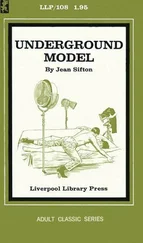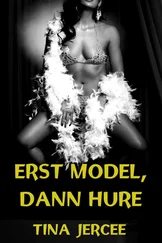“Your chameleon’s named Raoul?”
He shrugged. “He’s a veiled chameleon. You can tell by the crest on his head.”
“How many kinds are there?”
“Over a hundred.” He checked the thermometer hanging in the cage. “I used to have a terrarium, a glass one, but it was driving him crazy. Kept attacking his reflection.”
“Really?”
“They can’t stand looking at themselves.”
Lyle was liking the creature more and more. Hector reached into his bedside table and pulled out a little ziplock bag filled with suspicious white powder.
“Want some?” he asked.
Lyle’s heart tripped in her chest. “Okay.”
“I was joking. It’s vitamins for Raoul.”
Walking to his dresser, he opened a Tupperware container filled with crickets and then jiggled a few of them into the bag of powder. He shook the ziplocked bag in one hand. Then he dumped the powdered crickets, white as snowflakes, into a bowl at the bottom of Raoul’s cage. The lizard clung to his branch without moving. Just when Lyle decided he was uninterested, perhaps even dead, his tongue swelled into a bubble and spat across the cage like a spurt of tobacco and flew back into his mouth, all before you could blink, the hind legs of a cricket squirming from his lips.
“He can snag a cricket from thirty centimeters away,” Hector said proudly.
“Wow.” Lyle felt a little queasy. “I thought he might, you know, chameleon himself. Camouflage.”
“They don’t camouflage themselves,” Hector said. “That’s a myth.”
“They don’t change colors at all?”
“Only if they’re angry or emotional. Or sick.”
Someone — his grandmother — yelled from the other room. If it was Hector’s name, Lyle didn’t recognize it. He got up finally and then returned a minute later, carrying a pair of sunglasses.
“Sorry. I’ve got to hide these or she’ll stand there by the door like a movie star. I usually take her to the beach on Fridays. She likes to watch the seagulls.” He looked at Raoul, who was still gnawing on the cricket. “Maybe you could come with us sometime?”
“I hate the beach,” Lyle said. He seemed disappointed. “I’m not much for sunbathing.”
“Me neither. God. Mostly I just sit there and write poems.”
Hector reached under the bed and pulled out a stack of notebooks bound by a rubber band. There must have been four or five notebooks. Lyle wondered if he’d forgotten about lunch.
“Are they all love poems?” she asked suspiciously.
“No. I mean, they’re mostly about me.”
“Why do you keep them under the bed?”
He laughed. “My mom’s, like, the youth director of her church. She thinks I’m going to hell already.”
“I like the one you gave me,” she said, meeting his gaze.
He glanced away again. She could tell that he was going to give her another poem to read; perhaps, like “bones,” it would mirror her own erotic lunacy. He opened one of the notebooks and handed it to her. “The Piranhas of Time,” the poem was called. Her heart sank. It had all the dopey anguish of a heavy metal song. In growing desperation, she latched on to a couple lines near the end:
5 a.m., a circus in my brain
my juggler vein exposed to you
“I like how you use ‘juggler vein,’” she said. “After ‘circus.’ That’s really clever.”
“What?”
“Instead of ‘jugular.’”
He blushed crimson, grabbing the notebook from her. “I’m going to go to veterinary school. As soon as I get my bachelor’s. I’m taking night classes at Harbor College.”
She hadn’t meant to humiliate him: there was none of the dark thrill she’d felt watching him eat the ice cream cone at The Perfect Scoop. Something was happening to her. It had to do with the posters, with his pet chameleon, with the weird, touching fact that he’d wanted to show her his room to begin with. Hector wouldn’t look at her. Lyle touched his leg, feeling the pleasant crease of his pants. Someone — his grandmother again — yelled crazily from the living room. They both stared at Raoul, who’d changed from his greenish, tie-dyed swirl into a deep, miraculous blue.
“He’s jealous,” Hector said, clearing his throat.
“What are they going to do?” Biesty said. “Trash the place?”
Dustin smiled. “I wouldn’t count it out.”
They were on their way to a party in San Pedro, one that a guy had told them about at an X show. Some girls were being evicted from their duplex apartment and so they’d decided to throw a farewell party. The “farewell” was for the apartment, not the girls. The guy had laughed when he explained this, flashing them a mischievous grin. Dustin had never met any kids his age who were living by themselves, in their own duplex. Let alone being evicted.
He was nervous but enthralled. The steering wheel of the Dart stuck to his hands. He generally felt like something great and exciting and revolutionary was taking place nearby, if only he knew the right people.
The duplex was down by the harbor, near a field of deserted loading bridges. Dustin parked at the curb, wondering if he’d dressed in a way that would make him look less surferlike. After some deliberation, he’d decided to wear the new octopus belt buckle he’d bought at a record store in Hollywood, even though it poked him in the stomach whenever he sat down. If you looked closely, you could see a bottle of whiskey in one of the tentacles. To shore up their courage, Dustin and Biesty shared a Corona in the car. They’d been friends since the first week of tenth grade, when Biesty had shown up to chemistry in a pair of enormous black glasses taped together at the bridge. Dustin had assumed he was special ed, one of those guys who wears shorts every day even in December, and so was astonished when he’d taken off his sweater to reveal a Ramones T-shirt. The next day he’d let Dustin try on his glasses. No prescription. Even the tape, it turned out, was a hoax. Dustin had always been popular without trying; the idea of making it more difficult to attract friends had never occurred to him.
It wasn’t until a week later, though, when Biesty played him a song on his Walkman, that Dustin knew they were going to hit it off. “TV Eye,” by the Stooges. Dustin had never heard such music: it was like someone had smashed Elvis’s face with a hammer and told him to sing it off. It was a primitive thing, sound more than song, and it made you feel as cool as it was. Like you could destroy a girl’s sleep. In line at the cafeteria, listening through Biesty’s headphones, Dustin realized that his dick was hard. He’d confessed this to Biesty sometime afterward, when they were both drunk on Mr. Biesterman’s liquor, and his new friend did not laugh at him or call him a faggot. He said, “I always want to fuck my favorite songs.” If ever asked to explain their friendship, why they were going to UCLA together in the fall, Dustin would point to this one canonical remark.
“Are you sure this is cool?” he said now, staring at the curtained windows of the apartment. There were shouts from inside, punctuated by a scream. Biesty grinned from behind his wire-rim glasses. Sometime last year he’d traded in his special-ed look for something brainier, perhaps to compensate for the amount of dope he was smoking.
“If anyone messes with us, I’ll beat the knave into a twiggen bottle.”
“What the hell does that mean? ‘Twiggen’?”
Biesty shrugged. “Do I look like a Shakespeare scholar?”
“Yes.”
“Here. Have some more twiggen.”
Dustin gulped at the Corona. “When we get to college, you’ll have to stop talking like this. I mean, if either of us are going to make friends.”
Читать дальше












